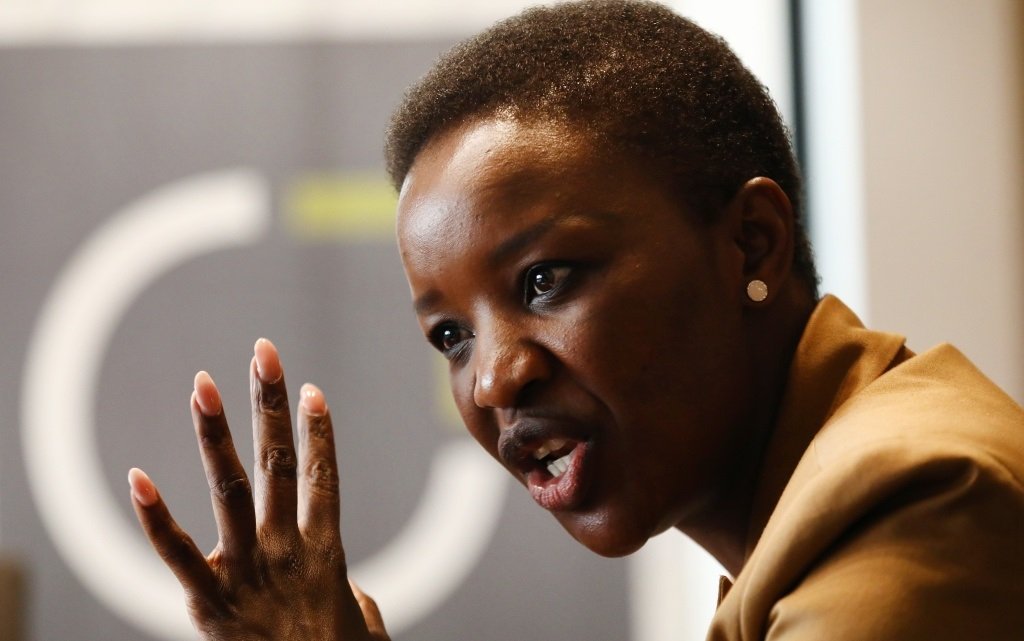Open-Ed
BLSA’s CEO’s Weekly Newsletter – Trust is fundamental to enabling all of us to work together
The annual Edelman Trust Barometer last week provided some interesting insights into the public’s view of business and government. What stood out in the South African results was the relatively high trust in business compared to government. The gap between the two is the largest in the world. Business has a trust rating of 62 (out of 100) while government is rated at 29.
It was also striking that 61% of South Africans believe partnerships between business and government can lead to more trustworthy management of technology-led changes. This perception has rocketed in the last ten years, amongst the highest increases of the countries surveyed. At a more granular level it was interesting that South African respondents have high trust in renewable energy innovation, but low trust in the energy sector overall, perhaps reflecting views of Eskom relative to new renewables production being created by the private sector.
The growth in public confidence in partnership between business and government reflects the successes we’ve had from Covid onwards in delivering positive change for the public by working together. The evidence is clear to see that when business and government combine their strengths, the public benefits.
Related news: South African government has run out of money
The Renewable Energy Independent Power Producers Programme is one of the most successful examples of government and business working together in the last 15 years. More recently, thanks to changes in regulation, business has rapidly committed to major additional investments in renewable energy production.
The potential for this kind of cooperation is clear when it comes to developing infrastructure. Also last week was the Sustainable Infrastructure Development Symposium, an annual event for government and the private sector to announce big numbers of intended infrastructure investment. President Cyril Ramaphosa said that South Africa needs an additional R1.6-trillion of public sector investment and R3.2-trillion of private sector investment. He also said that public-private partnerships are being made easier by regulatory reform. PPPs are an important mechanism to get more from government and business working together. They can bring together the strengths of both parties, including the technical and management capabilities of the private sector and the risk-bearing capability of the public sector to ensure infrastructure is built fast, at a high quality and then managed well.
The trust problem for South Africans is the effectiveness of the criminal justice system. On this front there were also two notable events last week: Nosiviwe Mapisa-Nqakula stepping aside from her role as speaker of Parliament amid a corruption investigation, and the death by suicide of former Steinhoff CEO Markus Jooste the day before he was due to be arrested and the day after he was fined a record R475m by the Financial Services Conduct Authority. The investigation of Mapisa-Nqakula has been high profile and shows the authorities are doing their work without fear. Of course, the investigation must be conducted and a prosecution mounted before any finding that will conclude the matter, but it is so important for trust in government that the authorities are being seen to do their work.
The death of Jooste will also certainly influence public opinion. Many I am sure will be frustrated that Jooste will now never have his day in court to answer to the crimes he is alleged to have committed in the biggest corporate fraud in South African history. There are others being investigated and charged connected to Steinhoff and I expect they will be in court soon. Steinhoff was a major blow to the trust of investors and ordinary South Africans in business, and it is essential that those involved face the consequences. This case helps restore trust in business, as cases like that against Mapisa-Nqakula help restore trust in government.
Trust is a valuable commodity in a society. It is fundamental to enabling all of us to work together, confident that we are able to rely on counterparts. Business cannot work without it. Every business person must assume others will deliver on commitments without the need to turn to the legal system. Of course a well-functioning system must be there as a backstop, and there has been low confidence in that system as it has battled to bring to book the many people implicated in corruption from state capture and subsequently. But last week will have helped shift that sentiment. I hope that shift gains momentum with more arrests and successful prosecutions.
As organised business we are very committed to building trust. One of the many ways we do that is through supporting the institutions of the criminal justice system, including making available to the NPA funds for independent experts to support investigations and prosecutions. We also work hard in partnering with government to address our challenges as a country, mobilising resources to work with government on resolving the electricity and logistics crises and providing technical expertise to work with and mentor civil servants to improve capacity from local government up. We will remain committed to these efforts, and it is positive to see that the public trusts business and government to work effectively together.
Author: Busisiwe Mavuso
Busi is CEO of Business Leadership South Africa (BLSA).
BLSA is a business organisation that believes in South Africa’s future and shares the values set out in the Constitution. BLSA is committed to playing its part in creating a South Africa of increasing prosperity for all by harnessing the resources and capabilities of business in partnership with government and civil society to deliver economic growth, transformation and inclusion.
Disclaimer: The articles and videos expressed in this publication are those of the authors. They do not purport to reflect the opinions or views of Green Building Africa, our staff or our advertisers. The designations employed in this publication and the presentation of material therein do not imply the expression of any opinion whatsoever on the part Green Building Africa concerning the legal status of any country, area or territory or of its authorities.
















